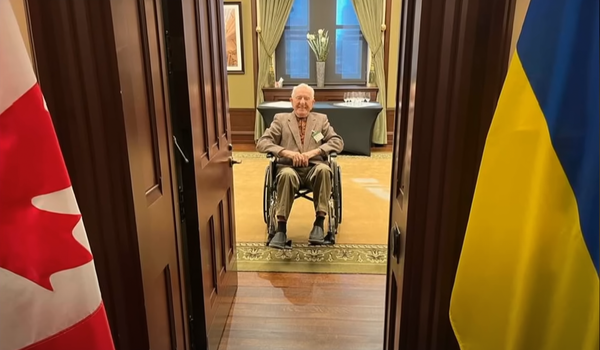The leaked news last month of the U.S. Supreme Court’s potential overturning of Roe v. Wade, the landmark decision that constitutionally protected abortion rights in the United States, has left many asking about the history and future of abortion rights and access in Canada.
How we got to where we are today
Currently, there are no federal laws governing abortion in Canada. Treated like any other medical procedure, abortion is publicly funded under the Canada Health Act and delivered through provincial and territorial health-care systems.
But this has only been the case for the last thirty-odd years.
Banned in 1869, abortion and dissemination of information about birth control were illegal in Canada for 100 years, under the penalty of life imprisonment.
Finally, in 1969, when amendments to Section 251 of the Criminal Code decriminalized contraception, therapeutic abortions became legal, under restricted conditions: A health-care professional had to deem that the continuation of a pregnancy would endanger the life or health of the person giving birth.
During this time, abortion access was limited across the country — those in isolated rural communities could not procure abortions, and even those in cities had to wait an average of eight weeks for a procedure. Some provinces also entirely refused to provide any abortion services at all.
Between 1969 and 1984, in defiance of Section 251 of the Criminal Code — that which allowed abortions only for those physically endangered by pregnancy — Canadian physician Dr. Henry Morgentaler opened clinics and performed abortions in Quebec, Winnipeg and Toronto.
Throughout this period, he was charged with multiple counts of conspiracy to perform an abortion and conspiracy to procure a miscarriage.
On January 28, 1988, in the case of R. v. Morgentaler, the Supreme Court of Canada ruled that the existing law was unconstitutional.
This struck down the 1969 act on the basis that it violated the right to “life, liberty and security of the person,” protected by Section 7 of the 1982 Canadian Charter of Rights and Freedoms. Abortion received the same status as other medical procedures in Canada.
Just the end of the legal story
Robyn Schwarz, a feminist writer and pro-choice activist, reminded The Maple of the 18 years of organizing that contributed to the legal battle for abortion rights in Canada, citing other abortion rights defenders like Carolyn Egan, Judy Rebick and the Ontario Coalition of Abortion Clinics who worked alongside Morgentaler to challenge the law.
“That narrative of those 18 years is important," said Schwarz. "It’s something I personally celebrate and honour, because it’s this incredible movement that is built [of] working-class women and women of colour. We know the name Morgentaler, but in some ways, that is an erasure of what actually happened.”
During the time of Morgentaler’s advocacy for abortion access, the Vancouver Women’s Caucus, a feminist group formed out of Simon Fraser University, organized political opposition to Section 251.
In 1970, 18 years before abortion laws were changed, the Caucus led the Abortion Caravan, gathering hundreds of supporters from Vancouver to Ottawa to rally on Parliament Hill. Approximately 30 women chained themselves to the gallery in the House of Commons, closing Parliament for the first time in its 103-year history.
Schwarz deems the advocacy surrounding the Morgentaler decision as the end of only the “legal story.”
After winning the legal battle for abortion rights in 1988, Morgentaler and his wife worked to train as many doctors as possible, creating a system of access and care around those providing and receiving abortions.
But in the past three decades, “flare-ups,” as Schwarz refers to them, have arisen challenging the legality of abortion rights.
In late 1989, the Progressive Conservative Party introduced Bill C-43 in an attempt to re-establish legal boundaries for abortions in Canada.
A proposed amendment to the Criminal Code, the bill sought to criminalize all abortions that were non-life-threatening or did not pose a significant threat to a pregnant person's physical or mental health. It was passed in the House of Commons, but narrowly defeated in the Senate.
The narrow defeat of the bill followed pro-choice protests across the country.
Similar bills attempting to regulate abortion and the rights of unborn fetuses continue to arise in Parliament. The Abortion Rights Coalition of Canada states that “at least 47 anti-choice private member bills or motions have been introduced in Canada’s Parliament since 1987.” All have failed to pass.
But these maneuvers aren’t what worry advocates like Schwarz when it comes to abortion rights.
“I'm very concerned and have been for a long time, but it's not because of the law. It's because of access and health-care issues,” said Schwarz.
Dr. Dorothy Shaw, recently retired vice president of medical affairs at BC Women’s Hospital, expressed the same concern, citing the fact that “physicians and other health-care providers may indicate their conscientious objection even though abortion is legal, leading to confusion for the woman and delays in getting to services.”
Where we stand now
Some view R. v. Morgentaler as the final battle for reproductive rights in Canada.
In the past 30 years since the R. v. Morgentaler decision, abortion rates in Canada have been generally stable, and fewer abortions have occurred late in the second trimester.
“If anything, it has shown that there’s less abortion rates at higher gestational age,” Dr. Genevieve Tam, co-founder of Vitala Global, a Canadian non-profit that provides digital platforms to support safe abortion and family planning, told The Maple.
Those who need abortions, said Dr. Tam, can now access the medical procedure earlier, meaning fewer people need it later on during pregnancy.
Among the most important moves the Canadian government has made to support abortion access was Health Canada’s green-lighting of Mifegymiso, a medication made up of Mifepristone and Misoprostol, abortion drugs used to terminate pregnancies up to a gestational age of 63 days.
Medication abortions were approved by Health Canada in 2015, but didn’t become available until the beginning of 2017. Dr. Shaw sees this as a game-changer for access.
“After approval of Mifegymiso in 2017 and thanks to the research of Dr. Wendy Norman and her colleagues, health policy has changed,” said Dr. Shaw. “The medication is now prescribed by physicians, nurse practitioners and pharmacists, and has impacted rural access positively.”
Ultrasounds are not required before the medication is taken, Dr. Shaw explained, and patients do not need to be observed taking the pills, meaning they can safely take the medication at home at a time that works for them.
“People were used to it just being an option," said Dr. Tam. "When you’re doing medication abortion at home, there’s a lot more nuance around making sure the patient has good follow up."
For the first few years of Mifegymiso’s availability, it was still easier for health professionals to advise patients to receive surgical abortions, explained Dr. Tam. But then COVID changed everything.
During the pandemic, access to medication abortions improved as telemedicine appointments could be conducted prior to prescribing the medication, explained Dr. Shaw.
As Vitala Group worked closely with abortion groups, Dr. Tam and her colleagues learned that throughout the COVID pandemic, medication abortions became favoured over surgical ones to limit patient-physician interactions.
But many obstacles still stand in the way of abortion access.
“The R v. Morgentaler decision was a huge step forward for reproductive rights in Canada, and it was the Charter of Rights and Freedoms that enabled [this] challenge to be successful,” said Dr. Shaw.
“However, it did not translate into equitable access to abortion services across the country for several reasons."
For one thing, health care in Canada is largely a provincial responsibility, Dr. Shaw noted.
“Prince Edward Island did not provide abortion services until 2017," she explained, adding that Nova Scotia had regulations preventing the provision of abortions outside of hospitals. New Brunswick still only covers surgical abortions if they are performed in hospitals, of which only three offer the service.
Other threats to abortion rights and access in Canada, Dr. Shaw added, include a lack of recognition of gender inequality, a lack of education among the public and health professionals, a lack of clinics providing comprehensive abortion and contraception care, and the cost of effective contraceptive methods.
U.S. aftershocks in Canada
So, what might the overturning of Roe v. Wade in the United States mean for Canada?
“I don't think Canadians understand how significant the access crisis is here and how it's actually worse than most of the U.S. in that,” said Schwarz.
On the one hand, those in the United States might venture north of the border to receive abortions and Mifegymiso from cities with already limited access to the procedures.
“If Roe vs Wade is overturned, we can expect to see women from the U.S. seeking abortion in Canada, bearing in mind that in any country women who do not have the financial or social support to travel (childcare, time off work etc.) will be disadvantaged,” said Dr. Shaw.
“Delays occur and result in increased risk (never as great as giving birth) and may lead some women to seek out unsafe abortion.”
On the other hand, Schwarz said that some Canadians seeking later-term abortions (those past 24 weeks) are flown out to providers in U.S. cities such as Boulder, Colorado, because of the lack of access to doctors able to do later procedures in Canada.
Criminalization of abortion in such states could limit abortion access to Canadians seeking those procedures as well.
“I hope that [educating the public on the history of Canada], and learning about abortion, and the amount of conversations that are happening will mean that soon we actually do demand access,” concluded Schwarz.
Editor's note, May 27, 2022: This story has been updated to clarify that New Brunswick still does not cover abortions that are performed outside of hospitals. It has also been updated to clarify that Dr. Dorothy Shaw has now retired as vice president of medical affairs at BC Women’s Hospital.
Jasmyne Eastmond is a freelance writer currently based in Toronto.







